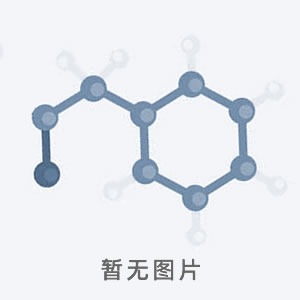本网站销售的所有产品仅用于工业应用或者科学研究等非医疗目的,不可用于人类或动物的临床诊断或者治疗,非药用,非食用。
Recombinant Mouse Activation-inducible TNF-related Ligand/AITRL
英文名:
Cas号:
Cas号:
检测信息查询

| 货号 | 规格 | 货期 | 库存 | 价格 | 促销价 | 订购 |
| 1308132830-10 μg | 0 | ¥3800 | ||||
| 1308132830-50 μg | 0 | ¥9800 |
| 别 名 | |
| Cas号 | |
| M D L | |
| 分子式 | |
| 分子量 | |
| 产品参数 | |
| 性状 | Recombinant Mouse Activation-inducible TNF-related Ligand/AITRL 是在 E. coli 中产生的单一非糖基化多肽链。分子量为 14.5 kDa。
Synonyms rMuActivation-inducible TNF-related Ligand/AITRL; TNFSF18; GITRL; TL-6 Species Mouse Source E. coli Accession Q7TS55 Gene ID 240873 Molecular Weight Approximately 14.5 kDa AA Sequence TAIESCMVKF ELSSSKWHMT SPKPHCVNTT SDGKLKILQS GTYLIYGQVI PVDKKYIKDN APFVVQIYKK NDVLQTLMND FQILPIGGVY ELHAGDNIYL KFNSKDHIQK TNTYWGIILM PDLPFIS Biological Activity The ED50 is <5 ng/mL as measured by PMBC, corresponding to a specific activity of >2 × 105 units/mg. Appearance Lyophilized powder. Formulation Lyophilized after extensive dialysis against PBS. Endotoxin Level <0.2 EU/μg, determined by LAL method. Reconstitution Reconstitute the lyophilized recombinant Mouse Activation-inducible TNF-related Ligand/AITRL (rMuActivation-inducible TNF-related Ligand/AITRL) to 100 µg/mL using ddH2O. Storage & Stability Lyophilized recombinant Mouse Activation-inducible TNF-related Ligand/AITRL (rMuActivation-inducible TNF-related Ligand/AITRL) is stored at -20°C. After reconstitution, it is stable at 4°C for 2 weeks or -20°C for longer. It is recommended to freeze aliquots at -20°C or -80°C for extended storage. Shipping Room temperature in continental US; may vary elsewhere. Background AITR (Activation-Inducible Tumor necrosis factor Receptor) and AITRL (AITR Ligand) are both costimulatory molecules, which are pairs of molecules that interact with each other and are expressed at high levels on the surface of CD4+CD25+ T cells. When these costimulatory molecules are activated, they inhibit the ability of the CD4+CD25+ T cells to suppress the autoreactive T-cells. This results in an increased autoimmune response[1]. |
| 贮存 |
- Recombinant Human Epidermal Growth Factor Receptor, His (Sf9 insect cells-expressed)
- Recombinant Human 4-1BB, Fc Chimera (CHO-expressed)
- Recombinant Human Activation-inducible TNF-related Ligand/AITRL
- Recombinant Mouse Activation-inducible TNF-related Ligand/AITRL
- Recombinant Mouse April/TNFSF13
- Recombinant Human B7-1/CD80, Fc Chimera (HEK293-expressed)
- Recombinant Human B7-2/CD86, Fc Chimera (HEK293-expressed)
- Recombinant Human B7-2/CD86, Fc-His (HEK293-expressed)

 小程序扫码下单
小程序扫码下单

 沪公网安备 31012002003054号
沪公网安备 31012002003054号